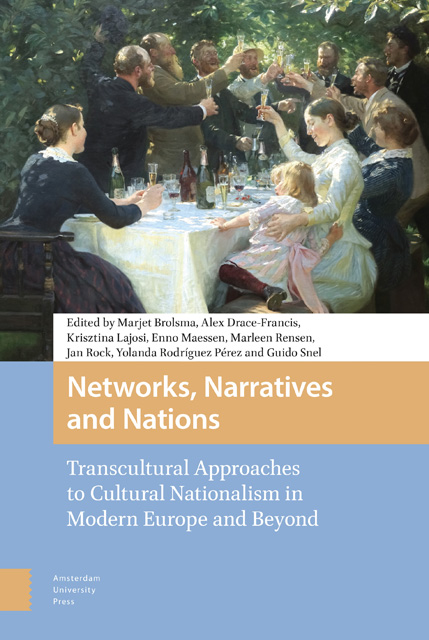 Networks, Narratives and Nations
Networks, Narratives and Nations Published online by Cambridge University Press: 16 November 2022
Abstract
This chapter is concerned with European notions of “the East,” and in particular Asia, around the time of the First World War. “The East” is one of a number of spatial conceptualizations, like the continents or the “Third World,” which are often the product of hegemonic and Eurocentric cultural imaginings. These European perceptions of Asia are examined here through the lens of popular fiction, and especially the novels of John Buchan, famous for his swashbuckling “shockers” about heroic British adventurers such as The Thirty-Nine Steps and Greenmantle. His musings arguably both guided and represented the complex and contradictory views held by “Westerners” around the time of the First World War.
Keywords John Buchan; Asia; imperialism; Islam; popular culture
“The peoples of Asia did not perceive of themselves as ‘Asians’ until the Europeans classified them in that way,” as the cartographical scholar A. J. Klinghoffer once remarked. Geographical orderings like the continents, the “Middle East,” or the “Third World,” are concepts usually invented by Europeans. Europeans have viewed the world in relation to themselves: one only needs to think of the Prime Meridian, where the longitudinal divisions of the world radiate out from the Greenwich Observatory in London. This chapter is concerned with “East” and “West,” and more specifically, with “Asia” and “Europe”: what do those terms imply? “The West”: that ubiquitous term in our daily media, but West of what? The East means “East of Europe,” but it has not always remained static. From about 700 ce in Western usage, “East” began increasingly to be associated with the Muslim religion and the areas it came to dominate. Later this East expanded to include the Indian subcontinent, as the Europeans discovered a new colonial Orient. Other variations would later include the Ottoman Empire (as in the “Orient Express”) and the Far Eastern “Yellow Peril.” East and West are thus terms culturally constructed by Europeans rather than being scientifically or geographically defined: “the East” is designated according to the changing dictates of the West.
To save this book to your Kindle, first ensure no-reply@cambridge.org is added to your Approved Personal Document E-mail List under your Personal Document Settings on the Manage Your Content and Devices page of your Amazon account. Then enter the ‘name’ part of your Kindle email address below. Find out more about saving to your Kindle.
Note you can select to save to either the @free.kindle.com or @kindle.com variations. ‘@free.kindle.com’ emails are free but can only be saved to your device when it is connected to wi-fi. ‘@kindle.com’ emails can be delivered even when you are not connected to wi-fi, but note that service fees apply.
Find out more about the Kindle Personal Document Service.
To save content items to your account, please confirm that you agree to abide by our usage policies. If this is the first time you use this feature, you will be asked to authorise Cambridge Core to connect with your account. Find out more about saving content to Dropbox.
To save content items to your account, please confirm that you agree to abide by our usage policies. If this is the first time you use this feature, you will be asked to authorise Cambridge Core to connect with your account. Find out more about saving content to Google Drive.